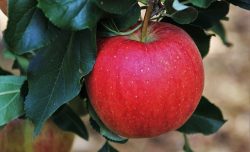E-Horticulture
27 October 2024
E-Horticulture
- What is E-Horticulture?
- Elements of E-Horticulture
- Benefits of E-Horticulture
- Future of E-Horticulture
What is E-Horticulture?
E-horticulture is a modern method of fruit cultivation that utilizes digital and internet technologies to manage, monitor, and optimize operations in orchards. Thanks to innovative solutions, e-horticulture allows gardeners to manage their crops more effectively and achieve better yields.
See international announcements on Agro-Market24: Agricultural Exchange
Elements of E-Horticulture
Real-Time Monitoring
One of the foundations of e-horticulture is real-time monitoring. Sensors in the orchard collect data on soil moisture, air temperature, sunlight exposure, and other important parameters. This data is sent to management systems, allowing gardeners to monitor conditions in the orchard and make decisions.
Internet Management
E-horticulture enables remote management of orchards through web applications and management platforms. Gardeners can monitor crop conditions, plan irrigation, fertilization, and other treatments, as well as analyze data collected by monitoring systems. This means more precise and efficient crop management.
Data Analysis and Forecasting
Data analysis is crucial in e-horticulture. Advanced algorithms and artificial intelligence analyze data and forecast future weather conditions, water needs, and plant diseases. These forecasts help optimize agricultural practices and achieve better yields.
Automated Irrigation, Fertilization, and Protection Systems
Automation is another element of e-horticulture. Irrigation and fertilization systems can be automated based on collected data. This means precise adjustment of water and fertilizers to the needs of the plants, conserving resources and improving crop efficiency.
Plant Health Management by Growers
E-horticulture technologies also enable monitoring of plant health. Systems can detect early signs of diseases and pests through image analysis and sensor data. Early detection allows for a quick response and application of plant protection measures, minimizing losses and achieving better yields.
Benefits of E-Horticulture
Efficiency
Thanks to modern technologies, e-horticulture better manages resources and makes operations in the orchard more efficient. Automation and precise management mean optimization of cultivation processes.
Time and Cost Savings
E-horticulture enables remote management and automation of many processes, saving time and reducing labor costs in the orchard. Automated irrigation, fertilization, and monitoring of plant health lead to lower operational costs.
Better Quality of Fruits
Monitoring conditions in the orchard and precise crop management lead to better fruit quality. Analytical systems optimize growth conditions and allow for healthier and more valuable fruits. E-horticulture can also improve the quality of fruits, such as blackcurrants, through better management of harvesting and variety diversity.
Sustainable Development
E-horticulture supports sustainable development through better management of water and fertilizers, reducing environmental impact. Precise application of plant protection products reduces chemical use and minimizes damage to the ecosystem.
Future of E-Horticulture
E-horticulture is still evolving, and the future will bring even more innovations. Integration with artificial intelligence, advances in automation systems, and more advanced monitoring systems are just some of the directions in which e-horticulture is heading. As sustainable development and environmental protection become increasingly important, e-horticulture will be crucial for the future of fruit cultivation.
E-horticulture is the future of orchard management. Gardeners around the world have more opportunities. With modern technologies, they can better manage their crops.
Data on Horticulture in Poland for 2016
Apple producers in Poland produce the largest quantity of these fruits in Europe. Additionally, companies exporting apples have strengthened Poland’s position in the global apple export market. E-horticulture, or internet horticulture, involves posting agricultural announcements and providing information related to the horticultural industry.
Horticulture is a branch of gardening that deals with the cultivation of perennial plants that produce fruits. The main horticultural regions in Poland are Grójecko – Warecki, the Sandomierz area, and Biała Rawska. In Poland, there are approximately 200 thousand hectares of apple orchards, followed by about 39 thousand hectares of cherry orchards, about 25 thousand hectares of plum orchards, about 14 thousand hectares of pear orchards, and about 12 thousand hectares of sweet cherry orchards. The highest yields per hectare come from apple and pear orchards. The variety of pear brands on the market is significant for consumers who have many varieties to choose from.
E-horticulture faces the enormous challenge of helping the horticultural industry sell such large quantities of products and informing about news and market situations in Poland and worldwide. Scientific publications in the field of horticulture play a key role in providing knowledge about cultivation and plant protection. Poland is one of the important horticultural countries in Europe. Besides Poland, the main horticultural countries in Europe include Spain, Italy, France, the Netherlands, Belgium, Germany, Greece, Turkey, and Ukraine. Well-organized sales are key to success in the horticultural industry.
Development of E-Horticulture
E-horticulture has been developing very dynamically in recent years. Many agricultural announcement portals, forums, and online exchanges have emerged. In Poland, traditional horticulture plays a significant role in agriculture. As leading producers of apples, cherries, sweet cherries, plums, and pears in Europe and among the larger exporters of these fruits, we are developing the Polish economy.
The European Union has a significant impact on the development of e-horticulture and traditional horticulture. Many EU projects have helped companies grow in the industry. Huge halls for storing and sorting fruits have helped Poland become a key player in the production and export of apples worldwide. In production, we are second only to China and the United States. However, in some years, we find ourselves in the first position globally in apple exports.
 Contact
Contact








